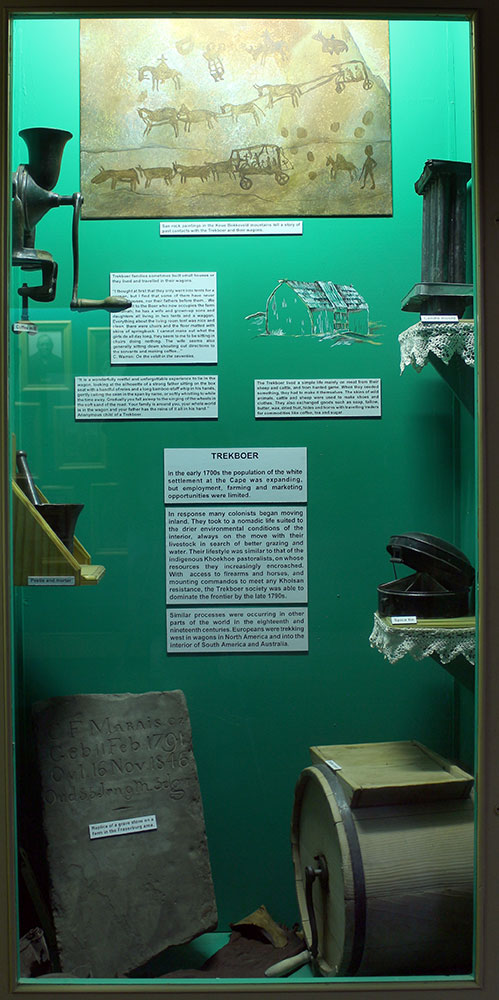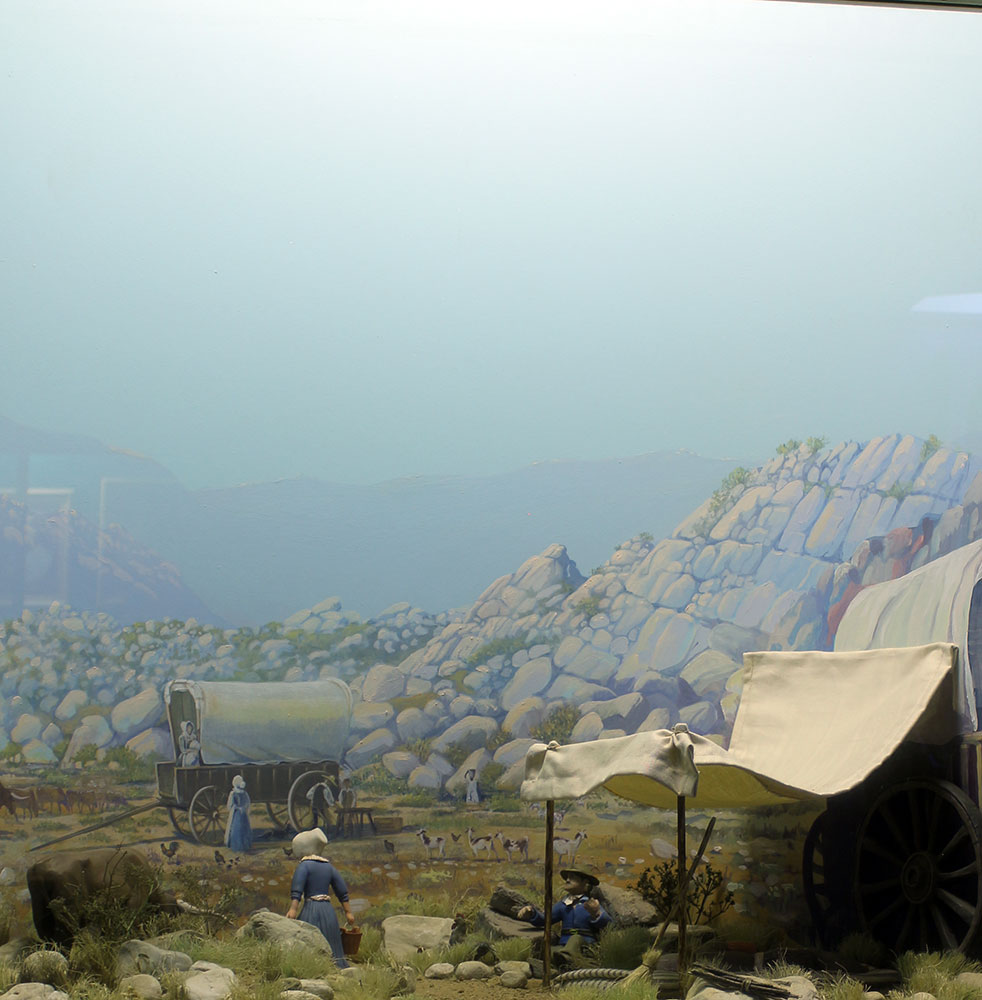Trekboers
- Trekboers
- https://museumsnc.co.za/new_site/wp-content/uploads/2021/04/trekboer-thumb.jpg
- ALL CATEGORIES
- https://museumsnc.co.za/new_site/wp-content/uploads/2021/04/Trekboers-part-1.mp3

Trekboers (the name means “moving farmers”) were mainly Dutch colonists who gradually penetrated inland. (The population of the white settlement at the Cape had been expanding, but employment, farming and marketing opportunities were limited).
They adopted a subsistence herding lifestyle similar to that of the Khoikhoi, on whose resources they increasingly encroached. With access to firearms and horses, and mounting commandos to meet any Khoisan resistance, Trekboer society was able to dominate the frontier by the late 1790s. Charles Warren described something of the domestic arrangements of Trekboers in the Northern Cape in the nineteenth century: as he said – “I thought at first that they only went into tents for a season, but I find that some of them have never lived in houses, nor their fathers before them… We paid a visit to the Boer who now occupies the farm at Ramah; he has a wife and grown-up sons and daughters all living in two tents and a waggon. Everything about the living room tent was nice and clean, there were chairs and the floor matted with skins of springbuck. I cannot make out what the girls do all day long, they seem to me to be sitting in chairs doing nothing. The wife seems also generally sitting down shouting out directions to the servants and making coffee…”
During the “Great Trek”, in the later-1830s, thousands of frontier farmers of Dutch descent left the Cape Colony, rebelling against British rule. They crossed the Orange River into what is now the Free State, and beyond, some spreading gradually west to areas occupied by Khoisan, Tswana and Griqua.

